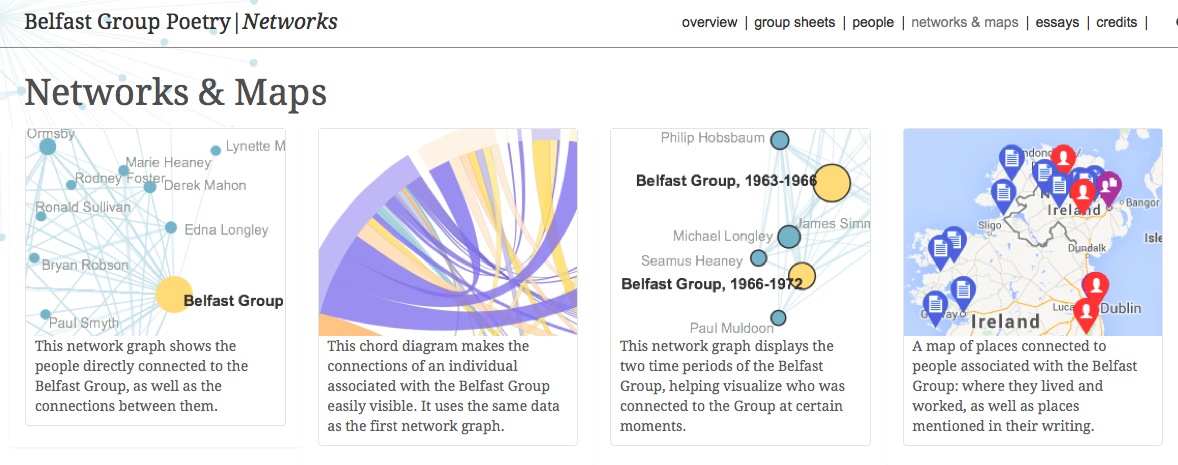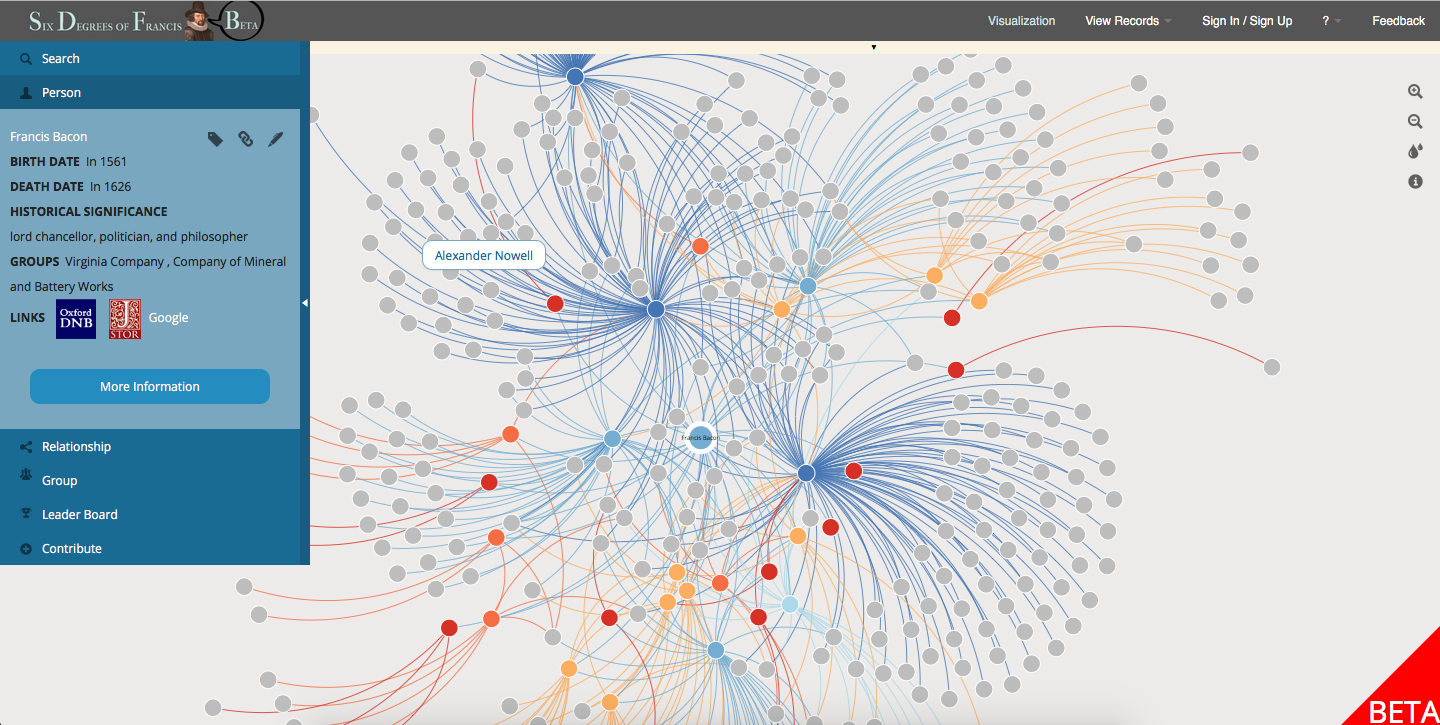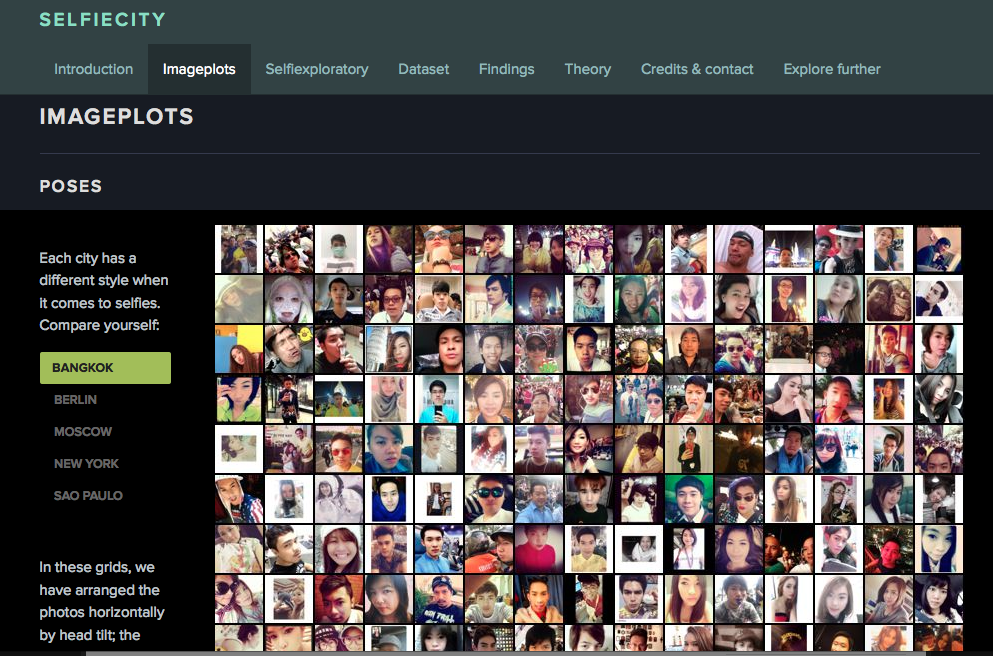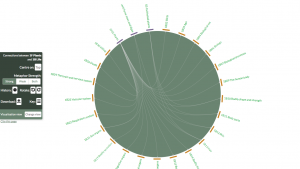After the Belfast Group stopped meeting in 1972, many participants downplayed its importance to the development of their writing. Regardless of its ultimate impact, the writing workshop nevertheless connected many authors in Northern Ireland. The pages linked above visualize these networks of relationships, as well as the writers’ connections to specific places.
Author: Katie Faull
Dr. Katherine Faull is Professor of German and Humanities at Bucknell University, Lewisburg, PA. Author and editor of six book-length publications, over 40 peer-reviewed articles and chapters, she was educated at King's College, London (BA Hons, German/Russian) and Princeton University (Germanic Languages and Literatures), and is a Life Member of Clare Hall, University of Cambridge. The recipient of three major grant awards from the National Endowment for the Humanities, she has published extensively on questions of gender, race, and autobiography in the Moravian Church in North America in the colonial period. She serves on the editorial board of the Journal of Moravian History, the book series, Anabaptist and Pietist Studies with the Pennsylvania State University Press, and is also a member of the Board of Directors of the Moravian Archives, Bethlehem, PA. Her current international collaborative DH project, Moravian Lives, focuses on the digital exploration of Moravian memoirs (moravian.bucknell.edu) and brings together top international scholars in the field of Pietism with graduate and undergraduate students in the exploration of 18th-century life writing, gender, race, and the Moravian world. Katie has also published scholarly articles on digital pedagogy at a liberal arts institution, DH and religious history, and digital visualization in the humanities.
For more, go to http://www.katiefaull.com
SelfieCity
Micki Kaufman describes her project:
“This project is an application of ‘big data’ computational text analysis techniques to research the Digital National Security Archive (DNSA)’s recently released Kissinger Collections, comprising approximately 17500 meeting memoranda (‘memcons’) and teleconference transcripts (‘telcons’) detailing Kissinger’s correspondence during the period 1969-1977: it is a first effort at ‘Diplonomics’.
The declassification of  the Kissinger material by the State Department and the hosting of that material on the DNSA’s Kissinger Collection web site therefore presents an opportunity and a challenge for historians. While having this large volume of information online for researchers is valuable, the restriction to a web-based ‘search’ interface can render it of limited use to researchers. The application of more sophisticated computational techniques permits a comprehensive analysis of the historical records of the Kissinger collection at the DNSA, and facilitates meaningful historical interpretations.”
the Kissinger material by the State Department and the hosting of that material on the DNSA’s Kissinger Collection web site therefore presents an opportunity and a challenge for historians. While having this large volume of information online for researchers is valuable, the restriction to a web-based ‘search’ interface can render it of limited use to researchers. The application of more sophisticated computational techniques permits a comprehensive analysis of the historical records of the Kissinger collection at the DNSA, and facilitates meaningful historical interpretations.”
Taken from http://blog.quantifyingkissinger.com/
‘Mapping Metaphor with the Historical Thesaurus‘ is a project researching changes in metaphorical thought and expression in the history of English. It was funded by the AHRC (grant reference AH/I02266X/1), was based in English Language, and ran from January 2012 to March 2015. From April 2015 to March 2016, we are continuing this work with the AHRC-funded project ‘Metaphor in the Curriculum’. Working with partners in education, this project uses the Mapping Metaphor research to create materials for schools based around metaphor.
*Our online, freely-available Metaphor Map of the English language is now available at this address*: http://mappingmetaphor.arts.gla.ac.uk. See our blog and Twitter feed for news, events and information.


